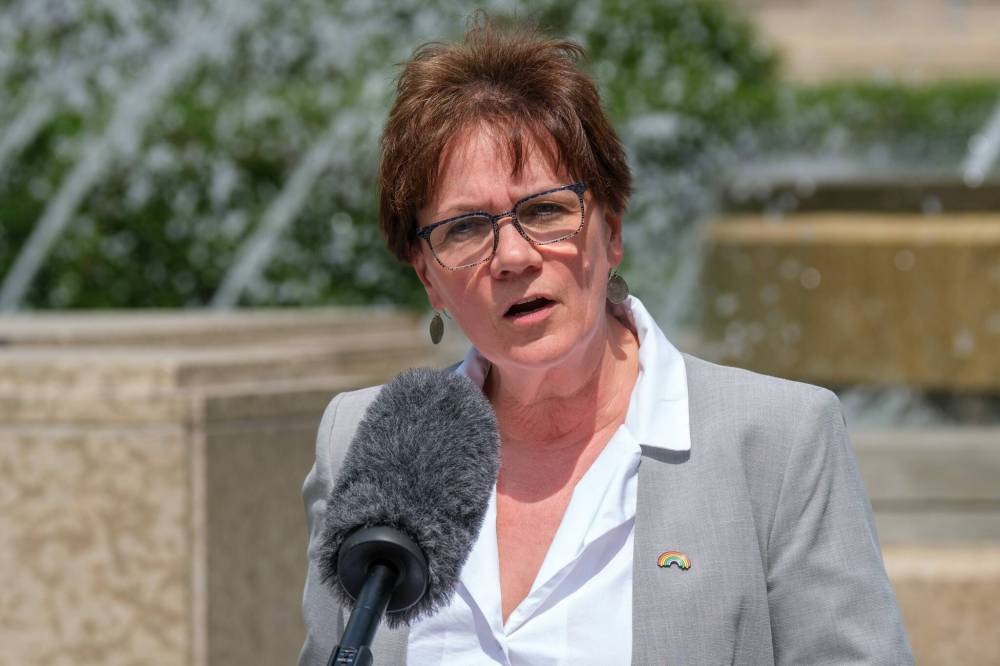Province commits to expanded virtual crisis health services after successful trial
Advertisement
Read this article for free:
or
Already have an account? Log in here »
To continue reading, please subscribe:
Monthly Digital Subscription
$0 for the first 4 weeks*
- Enjoy unlimited reading on winnipegfreepress.com
- Read the E-Edition, our digital replica newspaper
- Access News Break, our award-winning app
- Play interactive puzzles
*No charge for 4 weeks then price increases to the regular rate of $19.00 plus GST every four weeks. Offer available to new and qualified returning subscribers only. Cancel any time.
Monthly Digital Subscription
$4.75/week*
- Enjoy unlimited reading on winnipegfreepress.com
- Read the E-Edition, our digital replica newspaper
- Access News Break, our award-winning app
- Play interactive puzzles
*Billed as $19 plus GST every four weeks. Cancel any time.
To continue reading, please subscribe:
Add Free Press access to your Brandon Sun subscription for only an additional
$1 for the first 4 weeks*
*Your next subscription payment will increase by $1.00 and you will be charged $16.99 plus GST for four weeks. After four weeks, your payment will increase to $23.99 plus GST every four weeks.
Read unlimited articles for free today:
or
Already have an account? Log in here »
Hey there, time traveller!
This article was published 15/06/2023 (870 days ago), so information in it may no longer be current.
Virtual crisis-stabilization units and emergency telepsychiatry services are being expanded to more communities in rural and northern Manitoba following a successful pilot project.
The Manitoba government announced Thursday it will spend $2.4 million annually to operate a new rural emergent telepsychiatry and integrated virtual ward program.
The service offers people living in rural and remote areas access to telepsychiatry via secure video conferencing. Stabilization services and treatment for people experiencing a psychiatric or psychosocial crisis will be offered help at community-based facilities and via phone and video conferencing, according to government.

Mental Health and Community Wellness Minister Janice Morley-Lecomte. (Mike Deal / Winnipeg Free Press files)
Manitoba launched the two pilot programs in 2021 to test out the provincially co-ordinated virtual mental-health supports.
As of May 31, its virtual crisis-stabilization unit admitted more than 1,000 people and has reduced unnecessary use of emergency and hospital services, the province said.
The emergent telepsychiatry service, meanwhile, has responded to 549 calls for service and prevented 246 unnecessary out-of-community medical transports and 138 hospital admissions.
“Stress related to the COVID-19 pandemic has increased mental health issues across Manitoba and Canada, and Manitobans in rural communities and First Nations face distinct challenges in accessing the services they need, when and where they need them,” Mental Health Minister Janice Morley-Lecomte said in a release.
Program co-medical director Dr. Jennifer Hensel described it as the “future of health care.”
“Our virtual crisis services are breaking through the walls of our acute care settings and expanding our reach into areas that are underserved, and directly to individuals in need within the security and comfort of their own communities and homes,” Hensel said.
The two initiatives will see adults in northern First Nations communities and at rural health facilities offered the help they need faster and closer to home while reducing waits and unnecessary patient transfers or admissions, the province said.
A spokesperson for provincial authority Shared Health said emergency psychiatry assessment services can be requested by a health-care provider at any emergency department or nursing station in Manitoba.
The virtual crisis-stabilization unit will also accept referrals from emergency and urgent care departments and the Crisis Response Centre at Health Sciences Centre in Winnipeg.
— Staff
History
Updated on Thursday, June 15, 2023 3:17 PM CDT: writethru


